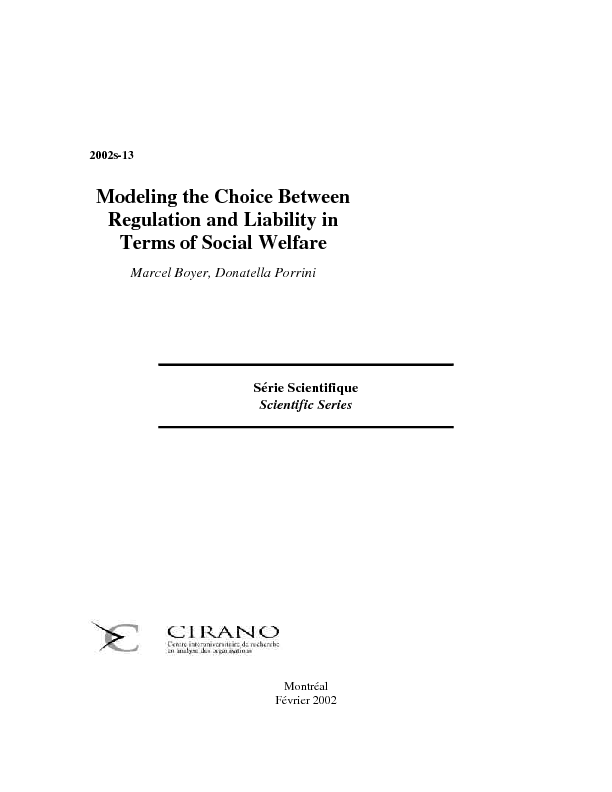Modeling the Choice Between Regulation and Liability in Terms of Social Welfare
Using a formal political economy model with incomplete information regarding the accident preventing activities chosen by the firm (moral hazard) under limited liability, we illustrate different conditions under which an environmental protection system based on extending liability to private financiers or to insurers through compulsory full insurance of the firm is welfare superior, inferior or equivalent to a system based on an incentive regulatory scheme subject to capture by the regulatees. We consider explicitly the following factors: the differential cost between low and high levels of environmental protection activities and the associated accident probabilities, the social cost of public funds, the informational rent of the firm, the net profitability of the risky activities, the level of damages if an accident occurs, the bias factor in case of regulatory capture. We characterize in this parameter space the regions where one system dominates the other.
[ - ]




